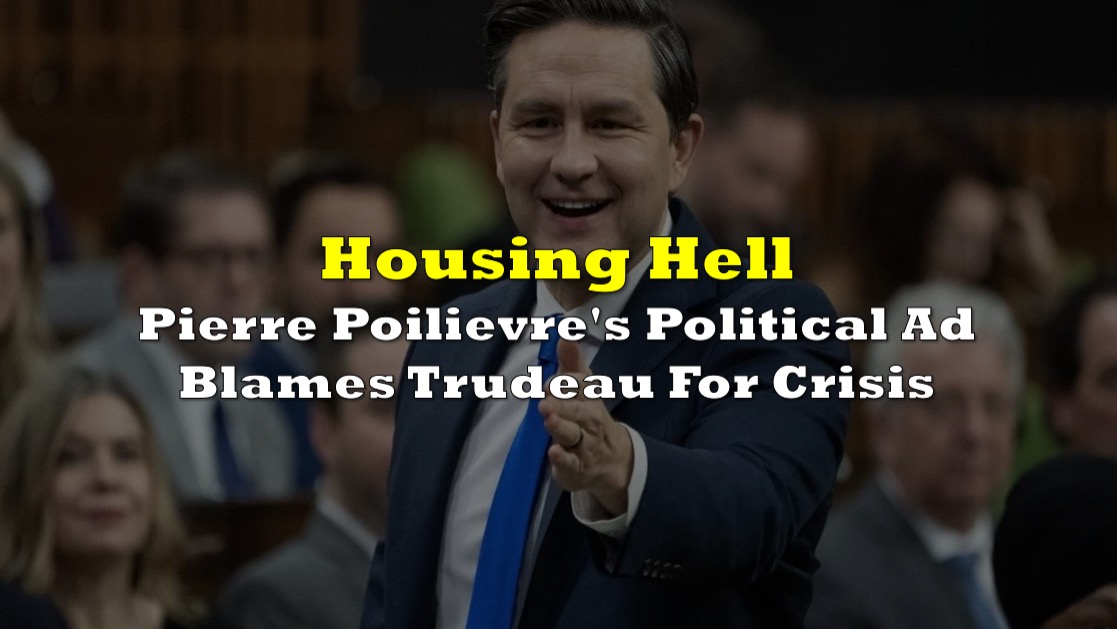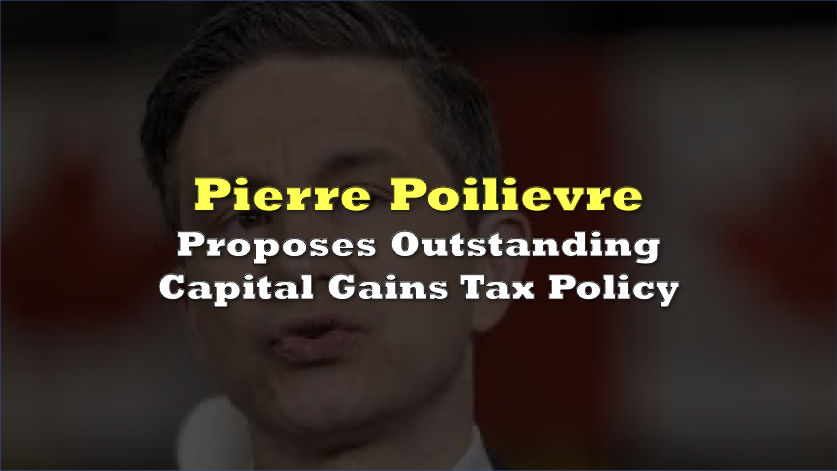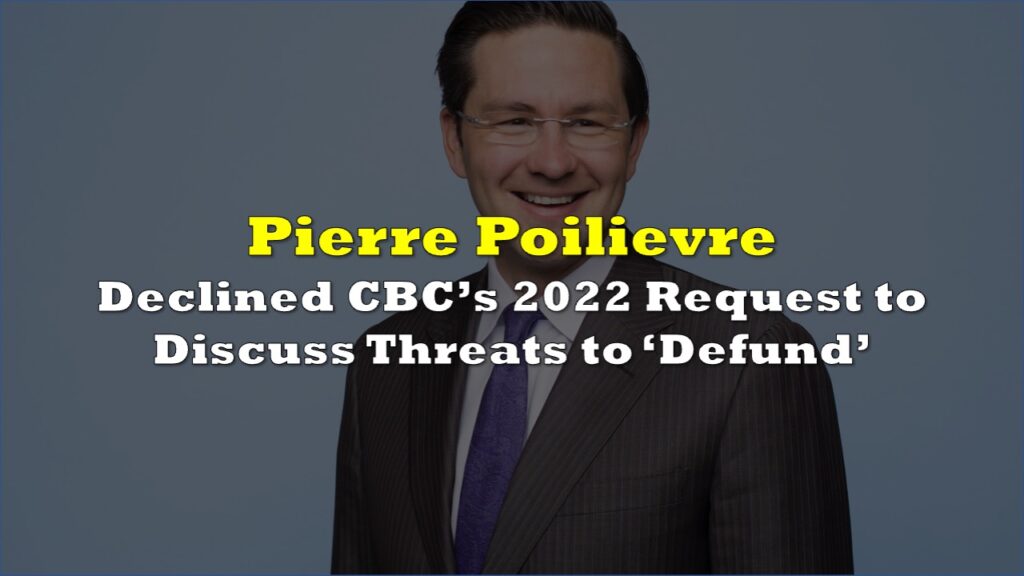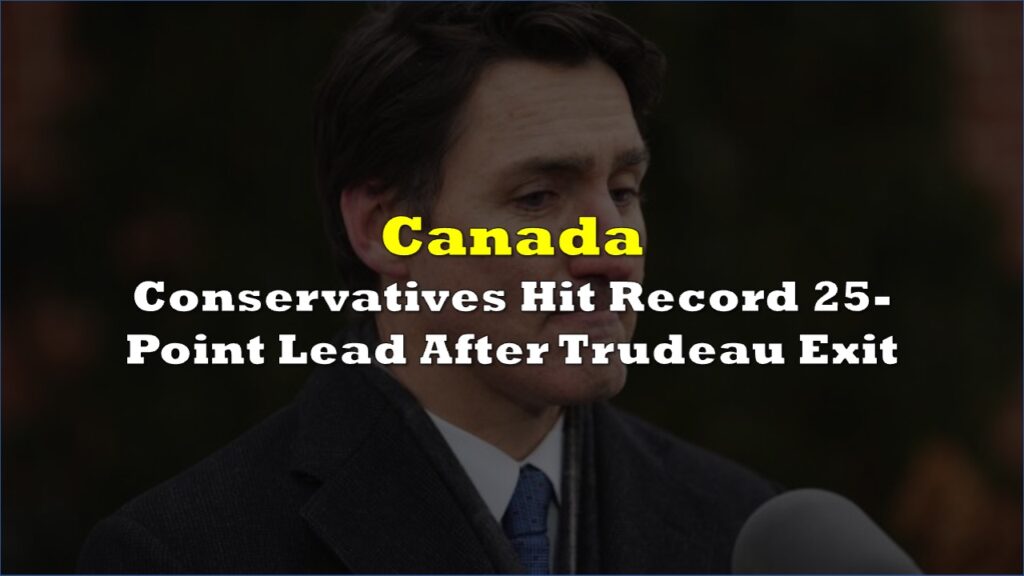In a departure from traditional political advertising, Conservative Leader Pierre Poilievre has released a 15-minute documentary-style video delving into the intricacies of Canada’s housing crisis. The video, available in both English and French, adopts a format more akin to PBS Frontline than a conventional campaign ad, signaling a shift towards in-depth exploration of complex issues.
The documentary, teased on social media platform X (formerly Twitter), tackles the housing crisis with a detailed analysis of government policies under Prime Minister Justin Trudeau. Poilievre argues that Trudeau’s approach to government spending and borrowing has fueled inflation, contributing to the unprecedented surge in housing costs.
Housing hell: How we got here and how we get out. pic.twitter.com/vVLsXMVM35
— Pierre Poilievre (@PierrePoilievre) December 2, 2023
The video employs slick graphics, charts, and economic explanations to make the case that these policies have priced many families and younger Canadians out of the housing market.
Highlighting the significance of the housing issue, Poilievre’s advisors note that, next to the carbon tax, housing dominates discussions at his rallies.
This sentiment is mirrored in recent Ipsos polling, where 73% of Canadians believe homeownership is now reserved for the affluent. Furthermore, 66% of non-homeowners express the belief that they will never be able to afford a home.
A noteworthy aspect of the documentary is Poilievre’s exploration of the impact of immigration on the housing crisis. Although not explicitly mentioned, the video suggests a correlation between high immigration levels and the challenges in the housing market. Recent polls indicate that a substantial number of Canadians share this concern, with three in four attributing the worsening housing crisis to increased immigration.
Poilievre’s narrative extends beyond blame, offering a solution to the housing predicament. His proposals include requiring large cities to complete 15% more homes annually to qualify for federal funding, rewarding cities exceeding this target with bonuses, mandating high-density housing around federally funded transit stations, and selling 15% of federal government buildings and surplus land suitable for housing.
The documentary closes with a return to more traditional advertising, showcasing Poilievre at home with his toddler and promoting his political slogan, “bring it home.” Poilievre’s strategic use of in-depth analysis on a platform like YouTube echoes a growing trend in conservative politics.
As Poilievre continues to lead in polls, this unconventional approach to political advertising could be a pivotal factor in engaging voters and shaping discussions around the critical issue of housing in Canada. Whether this marks a broader trend in political communication remains to be seen, but it certainly reflects a shift towards more detailed and substantive engagement with voters on crucial policy matters.
Sunday night laugh for you:
— Pierre Poilievre (@PierrePoilievre) December 4, 2023
Freeland just replied to my groundbreaking Housing Hell documentary with a tweet about her inflationary budget. Everyone howled with laughter—so she deleted it.
Minister: watch the documentary https://t.co/Ekxtngwv4L pic.twitter.com/aTH1vGcijP
Information for this story was found via National Post, Toronto Sun, and the sources mentioned. The author has no securities or affiliations related to the organizations discussed. Not a recommendation to buy or sell. Always do additional research and consult a professional before purchasing a security. The author holds no licenses.










4 Responses
Conservative Party leader Pierre Poilievre criticizes the Justin Trudeau Liberals for the unaffordability of housing and food, which is largely due to real-estate speculation or greed-flation.
But Poilievre’s Tories are at least as corp-ocratically inclined as Trudeau’s Liberals — i.e. being in bed with Big Business and their lobbyists.
Mix in promised Conservative austerity measures with the above unaffordability crisis, and you get a breeding ground for worsened economic conditions thus human suffering. Spared from this turmoil, of course, will be the well-to-to, which tend to side with the money-first-minded Tories.
What will Poilievre do about the fact that the more that giant-grocer corporations and corporate officers make, all the more they irresistibly want to and likely will make next quarter? It’s never enough.
We also see this notably appalling reality through the proliferating over-reliance on food banks. Unmet food needs that are exacerbated by unrelenting food-price inflation, while corporate profits and payouts to CEOs correspondingly inflate.
[And problematically, while corporate officers shrug their shoulders and defensively say their job is only to protect shareholders’ bottom-line interests, the shareholders shrug their shoulders while defensively stating that they just collect the dividends and that the big bosses are the ones to make the moral and ethical decisions.]
Resultantly, many Canadians have to choose between which necessities they can afford: nutritious food or shelter. …
Canadian, and American, business mentality and, by extension, collective society allow the well-being of humans to be decided by corporate profit-margin measures.
Maximizing profit even by minimizing the best interests of the people will likely always be a significant part of the big business beast’s nature. And governments dare not intervene, lest they be publicly labeled by the news-media as anti-business in our avidly capitalist culture.
Meanwhile the common yet questionable refrain STILL prevails among ‘free-market’ capitalist nation governments and corporate circles: It claims that best business practices, including what’s best for consumers, are best decided by business decision-makers.
But this was proven false numerous times, with Boeing’s 737 Max crashes and big pharma’s successful push of very addictive opioids being two most horrific examples.
Commies in the comments!
Pretty soon you’ll be on about how “housing is a human right,” and nationalizing oil companies… SOLIDARITY, COMRADE!
“Commies in the comments!” …
Though no pushover, Jesus fundamentally was about compassion and charity. His teachings and practices epitomize so much of the primary component of socialism — do not hoard morbidly gratuitous wealth in the midst of poverty. Ergo, he clearly would not tolerate the accumulation of tens of billions of dollars by individual people — especially while so many others go hungry and homeless.
I’m talking about Jesus through his teachings and practices — not pragmatism, politics or conservative/liberal goals. I mean the savior who hardly can be imagined rolling his eyes and sighing: ‘Oh well, I’m against everything the politician stands for, but what can you do when you dislike even more some of what his political competition stands for’.
What really bothers me is the immense injustice in so many people having to choose between which necessity of life they can afford — nutritious food or shelter. Meantime, the more that giant-grocer corporations and corporate officers make, all the more they irresistibly want to and likely will make next quarter. It’s never enough.
How’d that compassion and charity thing work out for Jesus?